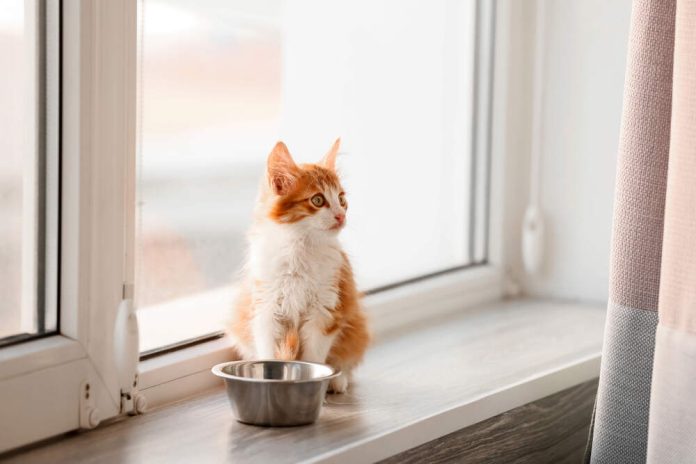When switching kitten food to adult cat food, pet owners may find the process confusing. A detailed guide is provided in this article on when to switch and how to select the right food for your cat.
Table of Contents
Introduction:
It is my pleasure to congratulate you on the arrival of your new kitten. When should you switch your furry friend from kitten to adult cat food?
As a responsible pet owner, you may be wondering when the time is appropriate to make the switch.
The nutritional needs of kittens differ from those of adult cats, so making the transition at the right time is essential to support their growth and development.
Throughout this article, we will explain when to switch from kitten to cat food, as well as how to select the best option for your kitten.
When to Switch from Kitten to Cat Food:
What is the appropriate time to switch from kitten food to adult cat food? When your kitten reaches the age of one year or reaches adult size, it should be transitioned onto adult cat food.
Every kitten is unique, and some may be ready to transition earlier or later than others. Here are a few factors to consider when making the transition from kitten to adult cat food:
- Breed size: There is a possibility that kittens of larger breeds will take a longer period to reach their full adult size and may require kitten food for a longer period.
- Weight and development: To determine if your kitten is ready for adult cat food, keep an eye on their weight and physical development. It may not be the right time to make the switch if they are still growing and gaining weight.
- Nutritional needs: The growth and development of kittens require a higher level of energy and protein than that of adult cats. Your kitten may not be ready to transition to adult cat food if they are still growing and have plenty of energy.
How to Choose the Right Cat Food for Your Kitten?
A kitten’s health and well-being are important factors to consider when switching to adult cat food. The food you choose for your cat should be high quality and meet its nutritional requirements. The following tips will assist you in selecting the best kitten food for your pet:
- Consider feeding your kitten cat food specifically designed for kittens. Kitten food must contain sufficient amounts of protein, fat, and other nutrients to support its growth and development.
- Make sure that the ingredients are listed. A high-quality source of protein should be one of the first few ingredients in the recipe. It is not advisable to feed your cat food that contains fillers, such as wheat and corn since these foods do not contain any nutritional value.
- Make sure that the cat food you choose is appropriate for the stage of life in which your kitten is at. A kitten’s nutritional needs differ from those of an adult cat, so it is important to choose a kitten-specific cat food.
Tips for Making the Transition:
When approached correctly, switching from kitten to adult cat food can be a smooth process. You can make the transition more smoothly by following these tips:
- The new cat food should be introduced gradually. The best way to transition to a portion of new cat food is to gradually add it to the old over a week rather than making a sudden change. The kitten will have time to adjust to the new food, thus reducing the possibility of gastrointestinal upset.
- You should be able to choose between wet and dry options. Your kitten may benefit from receiving both wet and dry food, so consider offering both options to him or her. As kittens are especially susceptible to dehydration, this will also help them stay hydrated.
- Make sure your kitten is eating well and maintaining a healthy weight. You should pay attention to your kitten’s appetite and weight to ensure they are receiving adequate nutrition.
FAQs
1. When is the right time to switch my kitten to adult cat food?
Generally speaking, the transition to adult cat food should take place at approximately one year of age or when your kitten has reached adult size. The timing of making the switch will vary from kitten to kitten depending on factors such as the breed size, the weight and development of the kitten, and the nutritional requirements of the kitten.
2. How do I choose the right cat food for my kitten?
Cat food for kittens should contain high-quality protein sources, such as chicken or fish, and be specifically formulated for kittens. It is recommended that you avoid cat foods that contain fillers, such as corn and wheat, as they do not provide adequate nutrition.
Conclusion:
You should consider switching your kitten’s food from kitten to adult cat food at an early stage in his or her development.
The transition to a portion of high-quality cat food that meets your kitten’s nutritional needs should be gradual and you should ensure a smooth transition to ensure your kitten’s health and well-being.
When deciding to switch breeds, it is important to consider factors such as breed size, weight, and development, as well as nutritional requirements. Consult your veterinarian for personalized advice if you are unsure when to make the switch.








